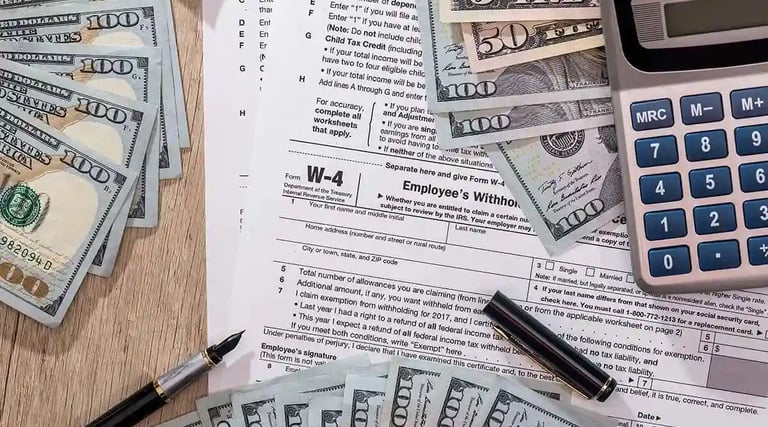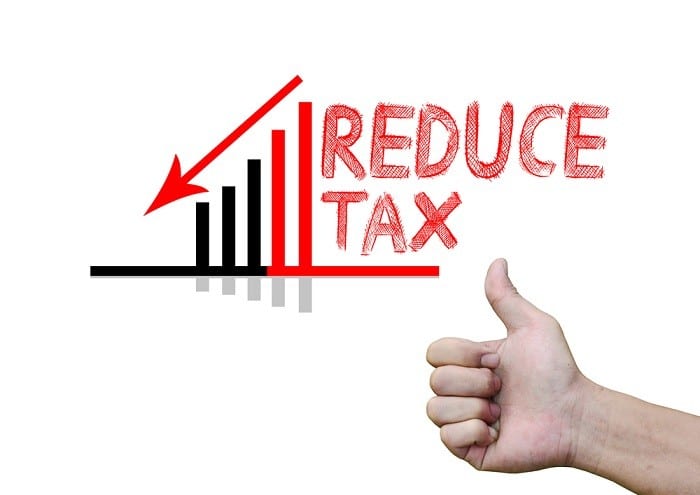Tax Strategy vs. Tax Filing: Knowing the Difference
Filing your taxes is reactive. Tax strategy is proactive. Discover why understanding the difference could save you money and transform your financial future.
TAX STRATEGYTAX FILINGTAX PLANNING VS TAX FILINGTAX STRATEGY VS TAX FILINGSTRATEGIC TAX PLANNINGPROACTIVE TAX PLANNINGREDUCE TAXES LEGALLYSAVE MONEY ON TAXESTAX EFFICIENCYWEALTH BUILDING THROUGH TAXES
Deus Vult Financial
9/4/20254 min read


When most people think about taxes, the first thing that comes to mind is tax filing: sending documents to the IRS and waiting to see whether they’ll owe money or receive a refund. But filing your taxes is not the same thing as tax strategy—and confusing the two could cost you thousands of dollars over your lifetime.
In this article, we’ll break down the difference between tax filing and tax strategy, why both are important, and how focusing only on filing keeps you stuck in a cycle of overpaying.
What Is Tax Filing?
Tax filing is the process of reporting your financial information to the IRS (and your state, if applicable). Every year, you submit details about your income, deductions, credits, and withholdings. Filing ensures compliance with the law and determines whether you’ll pay more taxes or receive a refund.
It is a reactive process. Once the year is over, your financial choices are locked in. You can only claim deductions or credits for things you already did—such as charitable donations, mortgage interest, or retirement contributions you made before the deadline.
Think of filing as the “report card” of your finances. It tells the IRS how you did last year, but it doesn’t change the outcome.
What Is Tax Strategy?
Tax strategy is proactive planning. Instead of looking backward at what already happened, strategy looks forward to shape what will happen.
A tax strategy may involve:
Choosing the right retirement accounts to reduce taxable income.
Setting up your business entity in the most tax-efficient way.
Timing major expenses or income to minimize liability.
Using tax credits (such as education or energy incentives) intentionally.
Structuring real estate investments for depreciation benefits.
Coordinating with estate planning to reduce future taxes.
While filing is a one-time annual event, strategy is an ongoing process—it happens all year long, every year.
Filing Without Strategy: The Missed Opportunity
Many people rely on tax preparers who only handle filing. The preparer ensures your return is accurate and compliant, but rarely provides guidance on how to improve your situation for next year.
This is like driving with your eyes glued to the rearview mirror. You’re only looking backward. By the time you realize you missed a deduction or could have structured your income differently, it’s too late.
For example:
Filing tells you that you paid too much in self-employment taxes.
Strategy would have shown you how to set up an S-Corp and save thousands.
Why the Difference Matters
1. One Saves Money, the Other Doesn’t
Filing helps you avoid penalties but doesn’t actively reduce your tax bill. Strategy helps you make choices that minimize what you owe.
2. Filing Is Passive, Strategy Is Active
Anyone can file a return. But developing a tax strategy requires forward thinking, creativity, and alignment with your financial goals.
3. Strategy Turns Taxes into a Wealth-Building Tool
With proper planning, taxes aren’t just a burden—they can become an opportunity. By taking advantage of incentives built into the tax code, you can accelerate wealth-building.
A Simple Analogy
Imagine going to a doctor.
Filing is like an annual checkup: the doctor records your weight, blood pressure, and cholesterol. It tells you how you’ve been doing.
Strategy is like a health plan: the doctor prescribes diet, exercise, and lifestyle changes to keep you healthier for years to come.
Which one makes a bigger impact on your long-term health? The same applies to your financial health.
The Role of Professionals
It’s important to note: filing and strategy are not mutually exclusive—you need both. The problem is that most people only get filing.
A CPA or tax preparer ensures your return is correct, but unless they’re also a strategist, you may not be getting advice on how to legally minimize taxes moving forward. That’s why working with a financial professional who offers strategic tax planning is so valuable.
How to Transition from Filing to Strategy
Ask Questions Beyond the Return
Instead of only asking, “What’s my refund?” ask, “What can I do this year to lower my taxes next year?”Look for Missed Opportunities
Review your past three years of returns with a strategist. Many people discover they could have saved significantly if they’d planned differently.Make Taxes Part of Your Year-Round Financial Plan
Don’t think of taxes as a once-a-year headache. Treat them as an integral part of budgeting, investing, and retirement planning.
Conclusion
Tax filing and tax strategy may sound similar, but they serve very different purposes. Filing is about compliance—it’s necessary, but limited. Strategy is about opportunity—it’s where real savings and long-term wealth growth happen.
If you’re only filing your taxes, you’re leaving money on the table. It’s time to shift from reactive to proactive and build a tax strategy that works for you.
✅ Call to Action (CTA): At Deus Vult Financial, we don’t just file your taxes—we help you create a proactive tax strategy that keeps more money in your pocket. Schedule a consultation today and discover the difference strategy can make.








Follow us
Expert coverage solutions, personal finance guidance and business strategies tailored to your needs.
Contact Us
Send us a message
info@deusvult.finance
(877) 241-2439
© 2024. Deus Vult Financial, All rights reserved.
Deus Vult Financial
712 1st Terrace 220 D
Lansing, KS 66043


